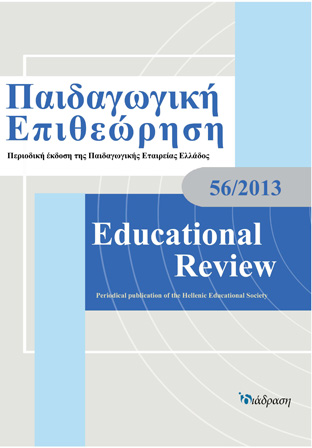Η ευαισθητοποίηση των δασκάλων απέναντι στην πολιτισμική ετερότητα: θεωρητική και εμπειρική προσέγγιση
Main Article Content
Περίληψη
Today the reality of cultural diversity in Greek school classrooms presents demanding challenges to teachers. A functional proposal in order to manage the diversified cultural and linguistic needs of the student force in formal education is effective teaching in terms of relating effectively in the classroom. However, teaching in multicultural classrooms requires a specialized teacher training in the area of cultural diversity and presupposes the development of intercultural competence. Intercultural competence entails a number of cognitive, affective and behavioral competences, which enable teachers to manage diversity with positive outcomes. Therefore it is important for teachers to be aware of the cultural differences within their classroom and be able to cope with their demands. In this paper we examine the way primary schools teachers perceive, interpret and act upon culturally different communicative situations within the classroom and how they manage cultural differences in order to promote intercultural learning. The way in which teachers implement school practices in order to guide productively the process of intercultural communication appears to be superficial. This is mostly due to the teachers’ lack of basic intercultural knowledge relating to language and teaching practices.
